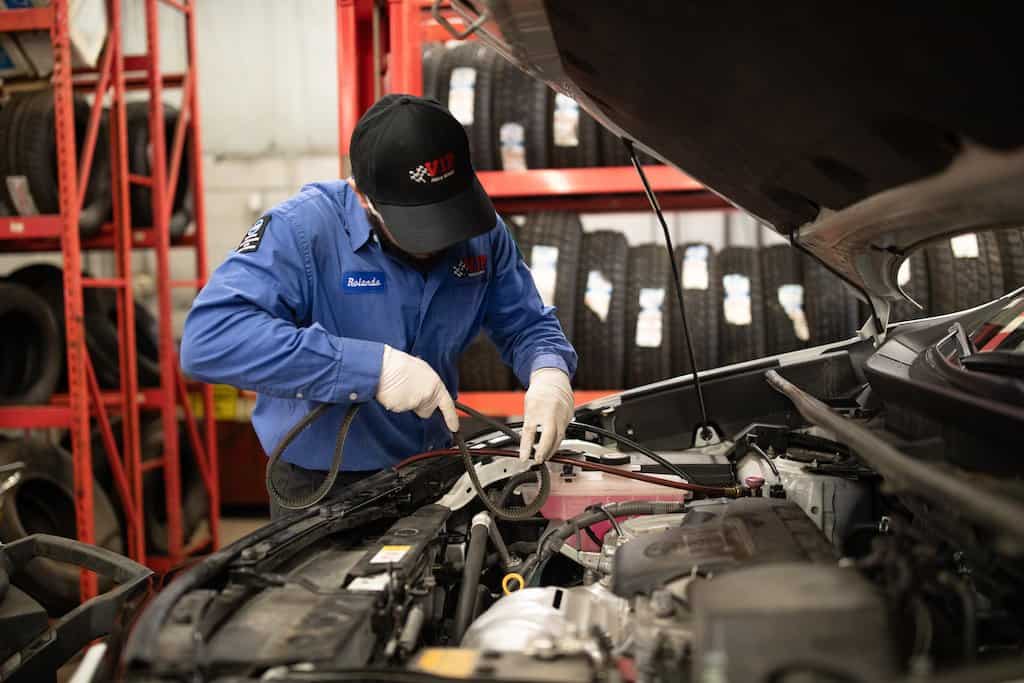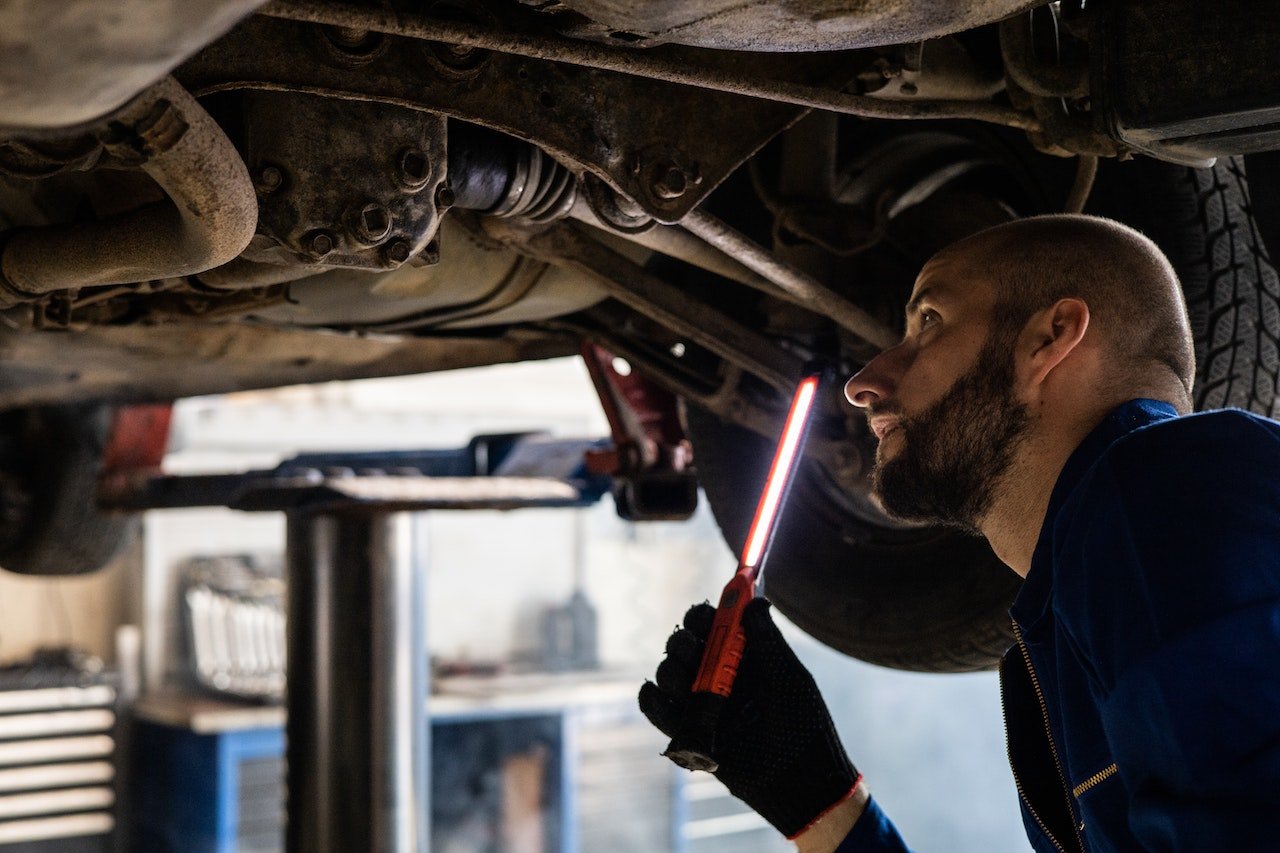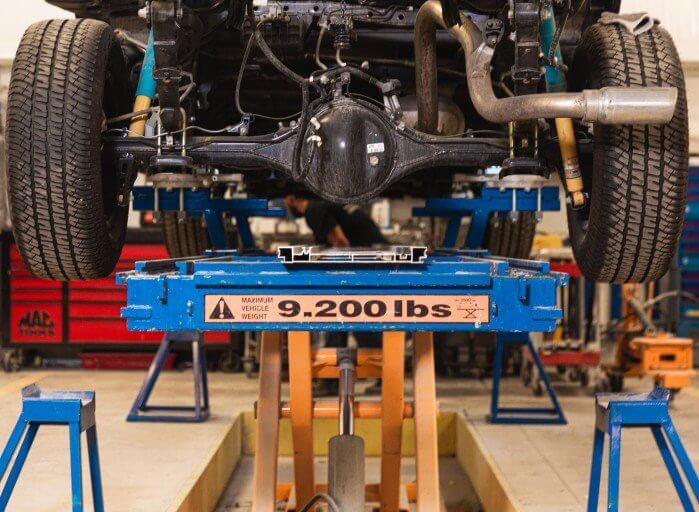The cost of fixing an oil leak varies depending on the specific issue, but it can range from $150 to $1200.
Credit: www.vipauto.com
The Importance Of Fixing An Oil Leak
An oil leak in a vehicle may seem like a minor issue, but its consequences can be far-reaching. Ignoring an oil leak can lead to severe engine damage, environmental pollution, and costly repairs down the line. It is crucial to address oil leaks promptly to prevent these problems and ensure the smooth operation of your vehicle.
Preventing Engine Damage
Fixing an oil leak is vital to prevent engine damage. Engine components rely on proper lubrication to function smoothly. When there is an oil leak, the engine parts may not receive enough lubrication, leading to increased friction and wear. Over time, this can result in engine overheating, reduced performance, and even complete engine failure. Repairing oil leaks immediately can save you from expensive engine repairs or having to replace the entire engine.
Avoiding Environmental Impact
Addressing oil leaks is not just important for your vehicle’s health, but also for the environment. Oil leaks release harmful substances into the ground, waterways, and surrounding ecosystems. These substances can contaminate soil, kill plant life, and pose risks to wildlife. Additionally, oil leaks contribute to air pollution when the leaked oil burns off or evaporates. By fixing oil leaks promptly, you are taking responsible actions to protect the environment and minimize your ecological footprint.
Regular vehicle maintenance and inspection can help detect oil leaks early. Keep an eye out for signs of oil leaks such as oil spots under the car, strong odor of burning oil, or a low oil level. If you notice any of these signs, it is crucial to have your vehicle inspected by a professional mechanic.
Summary
- Fixing an oil leak is essential to prevent engine damage and costly repairs.
- Oil leaks can harm the environment by polluting waterways and ecosystems.
- Early detection and prompt repair of oil leaks are crucial for maintaining vehicle performance and protecting the environment.
- Regular vehicle maintenance and inspections help identify oil leaks before they cause severe damage.
Common Causes Of Oil Leaks
Oil leaks are a common problem that many car owners experience at some point. If left unattended, these leaks can lead to severe damage and expensive repairs. It’s important to identify and address the causes of oil leaks as soon as possible to avoid further complications. In this section, we will discuss three common causes of oil leaks: worn gaskets and seals, loose oil pan drain plug, and cracked engine block or oil pan.
Worn Gaskets And Seals
Worn gaskets and seals are one of the leading causes of oil leaks in vehicles. Over time, these components can deteriorate due to heat and pressure, leading to gaps and cracks that allow oil to escape. Gaskets and seals are found in various parts of the engine, including the valve cover, oil pan, and cylinder head. When these gaskets or seals become worn or damaged, they no longer provide a tight seal, resulting in oil leaks.
It’s worth noting that gaskets and seals can wear out faster if the engine is running at high temperatures or if the vehicle is frequently exposed to extreme weather conditions. Regular maintenance, such as checking and replacing worn gaskets and seals, can help prevent oil leaks and extend the life of your engine.
Loose Oil Pan Drain Plug
The oil pan drain plug is responsible for keeping the oil contained within the oil pan. If the drain plug becomes loose or is not properly tightened during an oil change, it can cause oil leakage. This can result in a gradual loss of oil over time or, in some cases, a sudden and significant oil leak.
Inspecting and tightening the oil pan drain plug during routine oil changes is crucial to prevent leaks. It’s important to check for any signs of oil around the drain plug and ensure it is tightened to the manufacturer’s recommended torque specifications. If you notice an oil leak coming from the drain plug, it should be addressed immediately to avoid further damage to the engine.
Cracked Engine Block Or Oil Pan
A cracked engine block or oil pan is a more serious cause of oil leaks. These cracks can occur due to various factors, such as engine overheating, impact damage from road debris, or corrosion over time. When the engine block or oil pan cracks, it creates openings for the oil to escape.
Identifying a cracked engine block or oil pan can be challenging, as the cracks may not always be visible. However, some signs to look out for include oil spots on the ground where the vehicle is parked or a noticeable decrease in oil levels. In such cases, it is crucial to seek professional help to assess the extent of the damage and determine the best course of action for repair.
In conclusion, worn gaskets and seals, a loose oil pan drain plug, and a cracked engine block or oil pan are common causes of oil leaks in vehicles. Regular maintenance, including inspection and replacement of worn components, can help prevent oil leaks and ensure the longevity of your engine.
Diagnostic Process For Oil Leaks
When you notice an oil leak in your vehicle, it’s crucial to take immediate action to prevent further damage and maintain the performance of your engine. The diagnostic process for oil leaks involves a few different methods to identify the source of the leak accurately. By understanding these diagnostic techniques, you can have a better idea of how much it may cost to fix an oil leak.
Visual Inspection
One of the first steps in diagnosing an oil leak is through a visual inspection. An experienced mechanic will examine the engine compartment and surrounding areas to identify any visible signs of an oil leak. This may involve checking the valve covers, oil pan, gaskets, and seals for signs of oil seepage or pooling. Additionally, they will inspect the oil filter and drain plug for any leakage. A visual inspection allows mechanics to identify potential problem areas and determine further diagnostic procedures.
Using Dye Tracing
If a visual inspection doesn’t yield conclusive results, a mechanic may use dye tracing to pinpoint the exact location of the oil leak. This involves adding a special dye to the engine oil, which will flow through the system and reveal any leaking points. The vehicle is then run for a short period, and the mechanic uses a UV light to identify the areas where the dye has accumulated. Dye tracing is a highly effective method that allows mechanics to identify even the smallest leaks that are not visible during a visual inspection. Once the exact location of the leak is determined, necessary repairs can be performed.
Pressure Testing
Another diagnostic method for oil leaks is pressure testing. In this process, mechanics use specialized equipment to apply pressure to the engine’s oil system. By pressurizing the system, they can identify any leaks by observing oil seepage or drips. This testing is typically performed alongside a visual inspection and dye tracing to ensure that all possible leak points are identified. Pressure testing provides valuable insight into the condition of gaskets, seals, and other components, helping mechanics determine the best course of action for repairs.
Overall, the diagnostic process for oil leaks involves a combination of visual inspection, dye tracing, and pressure testing. These methods enable mechanics to identify the source and extent of the oil leak accurately. By undergoing a thorough diagnostic process, you can ensure that the necessary repairs are made promptly and prevent any further damage. The cost of fixing an oil leak can vary depending on the extent of the problem and the specific repairs required. Consulting with a professional mechanic will give you a better understanding of the costs involved and help you make informed decisions about your vehicle’s maintenance.
Credit: www.jdpower.com
Factors Affecting The Cost Of Fixing An Oil Leak
When it comes to fixing an oil leak in your vehicle, several factors can affect the overall cost. Understanding these factors can help you anticipate the expenses and make informed decisions. In this article, we will explore the key elements that influence the cost of fixing an oil leak.
Severity Of The Leak
The severity of the oil leak plays a crucial role in determining the cost of repairs. Minor leaks, such as a loose or worn-out gasket, may only require a simple fix, cost you anywhere from $50 to $200. However, major leaks, like a cracked engine block or a faulty oil pan, can lead to more extensive repairs, potentially costing you thousands of dollars.
Location Of The Leak
The location of the oil leak also influences the cost of fixing it. Some areas, like the valve cover gasket or oil filter housing, may be relatively easy to access and repair, resulting in lower labor costs. However, leaks in harder-to-reach areas, such as the oil cooler or rear main seal, may require more time and effort to fix, increasing the overall cost of repairs.
Labor Costs
The amount of labor required to fix the oil leak can significantly impact the final expenses. Labor costs can vary depending on factors such as the complexity of the repair, the experience of the mechanic, and the geographical location. Generally, you can expect to pay around $75 to $150 per hour for labor, in addition to the cost of parts.
Type Of Vehicle
The type of vehicle you have can also affect the cost of fixing an oil leak. Luxury or high-performance vehicles often have more intricate engine systems, which may require specialized tools, parts, and expertise. Consequently, repairs for these types of vehicles tend to be more expensive compared to standard or economy vehicles. Additionally, older vehicles may require extra care and attention, contributing to increased costs.
Estimating The Cost Of Fixing An Oil Leak
Fixing an oil leak can vary in cost depending on several factors such as the location of the leak, the type of vehicle, and the severity of the problem. It is recommended to consult with a professional mechanic to get an accurate estimate for the repairs.
Oil leaks in your vehicle can lead to potential damage and a decrease in performance over time. It is crucial to address oil leaks promptly to avoid any further complications. However, one common concern that vehicle owners have is the cost involved in fixing an oil leak. In this article, we will break down the different factors that contribute to the overall cost of fixing an oil leak. From parts replacement costs to labor costs and additional repairs, we will help you estimate the total cost before visiting an auto repair shop.Parts Replacement Costs
When it comes to fixing an oil leak, one of the primary expenses is the replacement of faulty parts. The specific parts that need replacement may vary depending on the source of the leak. However, common parts often include gaskets, seals, and hoses. Typically, the cost of these parts can range from $50 to $200, depending on the make and model of your vehicle. It is essential to consult with a mechanic or refer to your vehicle’s manual to determine the exact parts required for the repair.Labor Costs
In addition to the parts replacement costs, the labor involved in fixing an oil leak must also be taken into account. The time it takes to diagnose the issue, disassemble the necessary components, and replace the faulty parts can vary depending on the complexity of the leak. On average, labor costs for fixing an oil leak can range from $100 to $300. However, it is important to note that this estimate may vary depending on the skill level and location of the auto repair shop.Additional Repairs
In some cases, fixing an oil leak may uncover additional issues that need addressing to ensure the longevity of your vehicle. For example, if an oil leak is caused by a worn-out bearing, it may be necessary to replace the entire bearing system. These additional repairs can significantly impact the total cost of fixing an oil leak. It is crucial to discuss any potential additional repairs with your mechanic before proceeding with the fix to avoid any unexpected costs.Total Cost Estimation
To estimate the total cost of fixing an oil leak, you will need to consider both the parts replacement costs and the labor costs. As mentioned earlier, the typical range for parts replacement costs is $50 to $200, while labor costs can range from $100 to $300. Therefore, the total cost for fixing an oil leak can be estimated to be around $150 to $500, depending on the severity of the leak and any additional repairs required. Remember, these figures are rough estimates, and it is advisable to consult with a qualified mechanic to get an accurate assessment of the cost specific to your vehicle. Addressing an oil leak promptly can prevent further damage and ensure the optimal performance of your vehicle in the long run.Credit: keycollisioncenter.com
Frequently Asked Questions For How Much Does It Cost To Fix An Oil Leak
How Much Does It Cost To Fix An Oil Leak?
The cost to fix an oil leak can vary depending on the type of oil leak, the severity of the leak, and the make and model of your vehicle. On average, you can expect to pay anywhere from $150 to $1200 for oil leak repairs.
It is recommended to get a professional inspection to determine the exact cost for your specific situation.
What Causes An Oil Leak In A Car?
There are several common causes of oil leaks in cars, including worn or damaged gaskets and seals, loose or faulty oil filters, cracked oil pans, and engine overheating. It is important to address oil leaks promptly as they can lead to more serious and costly engine damage if left untreated.
Can I Drive My Car With An Oil Leak?
While it is possible to drive a car with an oil leak, it is not recommended. The oil is essential for lubricating and cooling the engine, and driving with low oil levels can lead to engine damage and potential breakdown.
If you suspect an oil leak, it is best to have it inspected and repaired as soon as possible to avoid larger issues down the road.
Conclusion
The cost of fixing an oil leak varies depending on several factors, including the type of vehicle, the severity of the leak, and the location of the leak. It is important to address oil leaks promptly to avoid further damage to the engine, which can ultimately lead to more expensive repairs.
Consulting with a trusted mechanic and getting a thorough inspection can help determine the exact cost and best course of action for fixing an oil leak.


